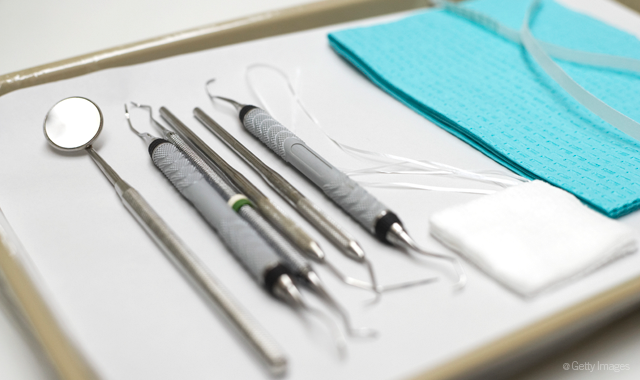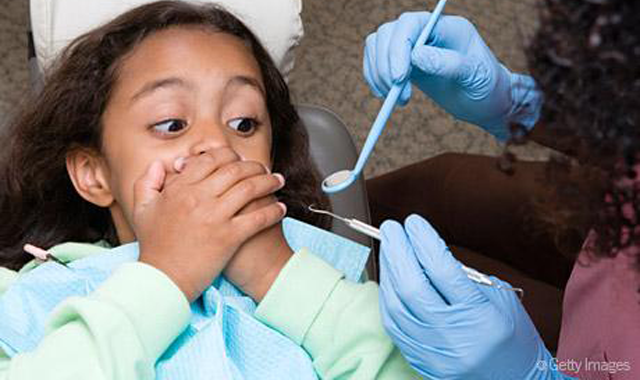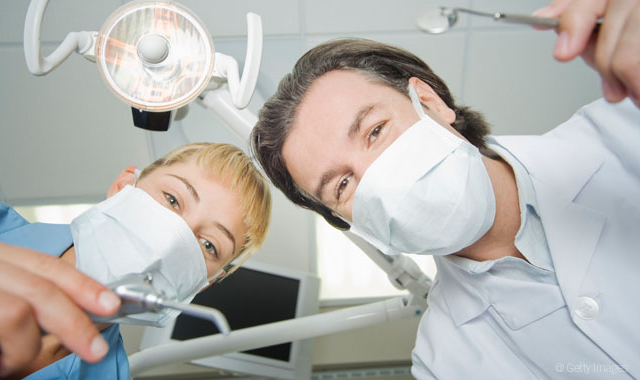5 Interesting questions hygienists asked Kara RDH in December
Kara Vavrosky, RDH answers some of the most interesting questions hygienists had for her this month.
As a well-known and accomplished dental hygienist, Kara Vavrosky often gets asked for advice.

She runs the popular Facebook page Dental Hygiene with Kara RDH and is also the founder of dentalhygieneanswers.com, a question-and-answer platform for dental hygienists.
Here, Vavrosky shares five more interesting questions she's been asked recently, along with her answers. This month, readers had questions about ethics, concerns about post-graduation, problems with dentists and more!

My dentist frequently makes me do SRPs on patients with 7, 8 and even 9 mm pockets. I just feel as if these pockets are too deep for me to be doing the patients any good. I feel they should be referred to a periodontist. Is it normal for hygienists to do this? When I show my concern about this, my dentist tells me he has 25+ years of experience and I need to trust him. If I “scrub the heck out of these pockets,” then they’ll be down to 2-3 mm in no time. This does not feel right to me, however, I’m new to hygiene and would like a more experienced opinion. Can even the most experienced of hygienists adequately SRP areas this deep, let alone a newer hygienist?
When dentists don’t refer patients properly it sure can put you in a tough position. You are correct that once pockets reach a certain depth (7+ mm), it’s best to refer to a periodontist. Once pockets become over 6 mm there’s only so much we can adequately reach with our instruments, no matter how long you have been practicing. I would only feel comfortable treating patients with pockets this deep if I had a dental endoscope so I could visibly see if I removed all deposits.
Removing all deposits matters, because if the tissue heals around a chunk of calculus, there runs a risk of a perio abscess. We live in a litigious society, and if a patient needed RCT/crown or lost the tooth because a referral should have been given, the patient could file suit against the doctor and even name you in the suit. Not to scare you, but that’s the reality we live in today.
There’s always the option of trying to scale these patients and hope the tissue responds without any negative consequences. You could also take post-SRP PAs to check for remaining calculus, however radiographs are 2D and will only show interproximal calculus if it’s heavy. There’s obviously more surfaces than just interproximal, so it’s only a small snapshot. If a pocket doesn’t respond, then you could suggest a referral to a periodontist. However, considering we are licensed professionals who have a standard of care to abide by, I would be careful with this option.
The next question you need to ask yourself is if you are on the same page with the doctor as far as patient care. It is important to work in an office that shares your standard of care. Unfortunately, it sounds like you and your doctor are not on the same page here. In my experience when doctors don’t refer, often times it’s to keep patients within their practice just to add to the production of the practice. Dentistry is a business, but it’s a business of taking care of patients. Patient care should be number one, and the production numbers fall into place after that. Being a new hygienist is hard! Whether you are a new or experienced hygienist, you want to do right by your doctor, but it shouldn’t be at the expense of your ethics and patient care.

I am currently in school, but do not intend on staying in the same area when I graduate. I hope to move back home where my family is, at least to start out my career. What recommendations would you have for me going about making connections back home? My dentist is my cousin and she said she would help me out by writing recommendation letters, but I feel like there’s so much more to do!
I think you are on the right track by starting with your dentist cousin. Don’t forget to have your hygiene school instructors write you letters of recommendation too. Beyond having your cousin write a letter of recommendation, ask her if she knows any other dentists who are hiring. You can also ask her if there are any dental networking groups or study clubs she belongs to. She is already involved in her local area, so for networking she is your best place to start.
Beyond utilizing your cousin for networking, I recommend contacting the local Dental Hygienists’ Association and explain that you are currently a student looking to move back home and ask if they have a list of offices that may be hiring or looking for temps. You can make these connections digitally before you move back, and then once you are back home you can physically meet with people to further the networking. Find out any events they are holding and attend those.
You should also look for different online dental groups to join and become active in. There are quite a few Facebook and LinkedIn groups to participate in. Additionally, sign up for the different dental job sites that are out there to become aware of different job opportunities.
Another outside-the-box way to network is to look for dental instrument and equipment sales reps and call them up. You can do a Google search for the companies, and many times you’ll find contact information for the sales reps directly on the company website. These people are in sales, so most of their job revolves around networking. Explain to them that you are a student who is looking to move and wanted to introduce yourself. Once you are back home, set up a time to sit down and meet with them.
You can also let them know that your cousin is a dentist, and that you would be willing to reciprocate any help they can provide you by introducing them to your cousin. The best way to get somebody to help you is to offer to help them in any way you can first. This is the basis of networking. While it may not feel like you have much to offer as a student, a smart dental sales rep will understand the power of being in good with a hygienist once you finally land a job.
When you do move home, temping is a great way to get your foot in the door at offices. If there are any volunteering opportunities (Mission of Mercy, Children’s Clinics), don’t hesitate to volunteer your time. It’s another great way to meet other dental professionals that may know of offices that are hiring. Dropping off resumes at offices for possible temping opportunities and attending dental conferences are ideas to get your name out there too.
I hope this gives you some ideas on where to start. The important thing to remember is that you can start networking digitally before you move. I wish you the very best of luck in your remaining time at school and finding a job upon graduation!

My office is wanting to increase sealant placement. They have asked us to inform the patient of areas that will likely need sealants and go over a financial agreement with them for sealants prior to the doctor ever meeting the patient. I feel as though it is diagnosing treatment. They are telling me it is not diagnosing because the treatment hasn’t been completed. What are your thoughts on this? And how should is situation be handled?
In my opinion, I don’t see anything wrong with informing a patient that they may be a candidate for sealants before the doctor does his/her exam, if the patient would benefit from them (not just because insurance covers them). It gives you a chance to explain the preventive nature of sealants, and it means you are the preventive specialist in the office. It may also help with compliance if a patient hears the recommendation from two providers.
I would make sure to let the patient know that the doctor will make the ultimate decision on recommended treatment. Like you mentioned, as long as they aren’t placed before the doctor does an exam (definitive diagnosis) and checks for decay, informing them about the benefits of sealants if they are a candidate is appropriate.
However, I do see your concern here. If you go over your whole reason for sealants, then the doctor comes in and all of those teeth have decay and sealants aren’t actually an option, that would be a huge waste of time. If that starts happening, you will have to have a conversation with the doctor about protocol and how to fix the problem.
I do see an issue with you being the one going over specific financials and billing. If the front office wants to have an insurance breakdown for the patient ready before the patient’s appointment so you can give them general prices that seems fine. However, when it comes down to the details I feel that the front office should do that.
For instance, I worked for a doctor who would always refer a patient to the front office when a patient asked how much such and such treatment would be, even though he knew the answer. This allowed him to distinguish between himself as the provider and them as the billing specialists. It worked out quite well because lines were not blurred.
This also allowed the patient to get the most accurate information, because the front office can look up how much of the patient’s dental benefits have been used, what is covered, etc. You simply don’t have time for that: your job is to treat patients. You also don’t want to give the patient incorrect information-that doesn’t help with your credibility or the office’s credibility. I’m all for helping around the office when you have downtime, but there are some things where it’s best for everyone if the front desk handles it.
Change is always hard, but as long as you are giving recommendations based on patient need, and not based on what insurance covers, it’s a win for the patient. As long as everyone in the office does their part, and is open to tweaks in office protocol to make the change as smooth as possible for everyone involved (including the patient), it’s worth giving it a try with an open mind. Good luck!

I’m a newer hygienist, less than two years. I’ve always felt that I’m good with scaling. Recently I’ve been told that I’ve been missing things, and I’ve been taking it hard. Any tips?
Even though we strive for perfection, we all leave calculus once in a while, so don’t take this too hard! There are a few things to assess to figure out why you are missing calculus. Two big factors are the quality of your instruments and your technique. Going back to basics, adaptation of the cutting edge and a correct fulcrum, are key, but if this is a recent issue, it may not necessarily be something you are necessarily doing wrong.
Being a recent problem, I would assess your instruments. If they are dull or past their prime, your instruments may be the issue. Do they need to be sharpened? Do your instruments need to be replaced? Depending on many factors (amount of set-ups, amount and difficulty of patients, etc.) instruments’ lifespan is about nine to 18 months. Ultrasonic inserts wear out too, so make sure to keep the card that comes with them to assess when they need to be replaced. Also, make sure the power setting on your ultrasonic isn’t too high or too low, because either of these may burnish calculus.
Do you have loupes? A light? Are you exploring to check your work? Do you blow air to check for supragingival calculus? Are you given enough time for appointments to give thorough treatment, or was your appointment time just shortened? Just a few other things to consider.
Lastly, I would ask the person who is pointing out that you are missing things to be specific, and not only tell you, but show you where and what you are missing, then check for yourself. If it’s the same area, say the distal of tooth number 28, then you have a baseline of where to focus. Constructive criticism is only helpful if it’s specific and actually constructive.
Most importantly, don’t get down on yourself. By asking this question, it’s clear you have a desire to improve, so keep that mindset. Being a dental hygienist is a skill that takes time to develop and you will continue to improve as time goes on.

My office told me to be careful of recommending SRPs with no radiographic calculus. I had two patients who were denied by their (good) insurance. Those two patients haven’t had cleaning in about 10 years, and have beginning to moderate bone loss, heavy bleeding, heavy plaque, generalized supra calculus and generalized 4-6mm pockets. It was suggested that we do alternative treatments, such as prophy with full mouth irrigation and/or Arestin (lots of Arestin). I’m conflicted. I’m unsure if we’re supposed to go with the reality that dentistry is a business and think about which types of insurance are strict or not, before even recommending the right treatment. Has anyone dealt with this problem before? If so, what do you do? I mean, we’re clinicians recommending what’s best for the patient right?
Without seeing these patients clinically, and by just going off your description, I would agree they would benefit more from non-surgical periodontal therapy/SRPs than from the recommended “alternative treatments.”
Were the complete periodontal charts (pocket depths, recession, bleeding points, furcation involvement, mobility, suppuration) and radiographs submitted to their insurance? If they were, I would resubmit with a narrative. If your office doesn’t have template, you want to include your clinical findings, AAP Type, contributing factors (medications, diabetes, smoking, etc.) and other things like this to paint a picture. It doesn’t need to be overly long, but it should be descriptive including that the disease is active.
You are correct that as clinicians, we treat the patients based on their individual needs and their disease state, not what the insurance dictates. Don’t lose sight of that responsibility. Nor should we be basing our treatment recommendations on what a non-dental professional thinks we should be treatment planning based on what insurance dictates. While dentistry is a business, it is the business of patient care. What’s most beneficial to the patient, based on clinical findings, should be the basis of our treatment recommendations. Go with your education, and your gut, in determining the best treatment for a patient. They tend to be right!